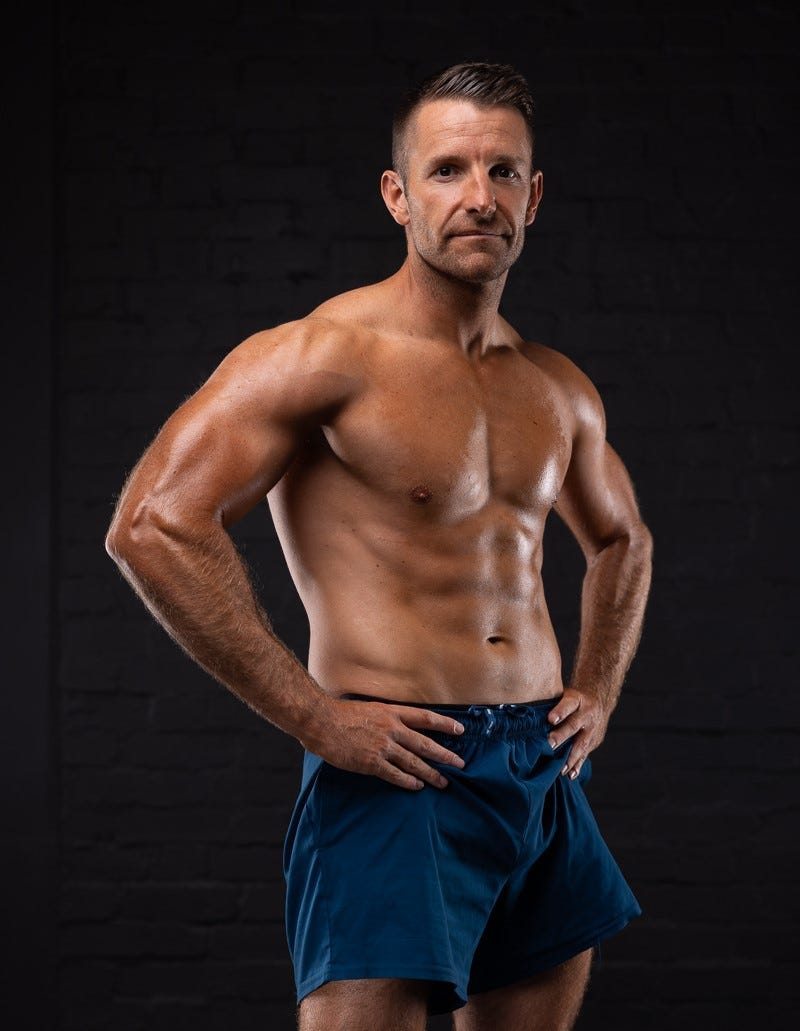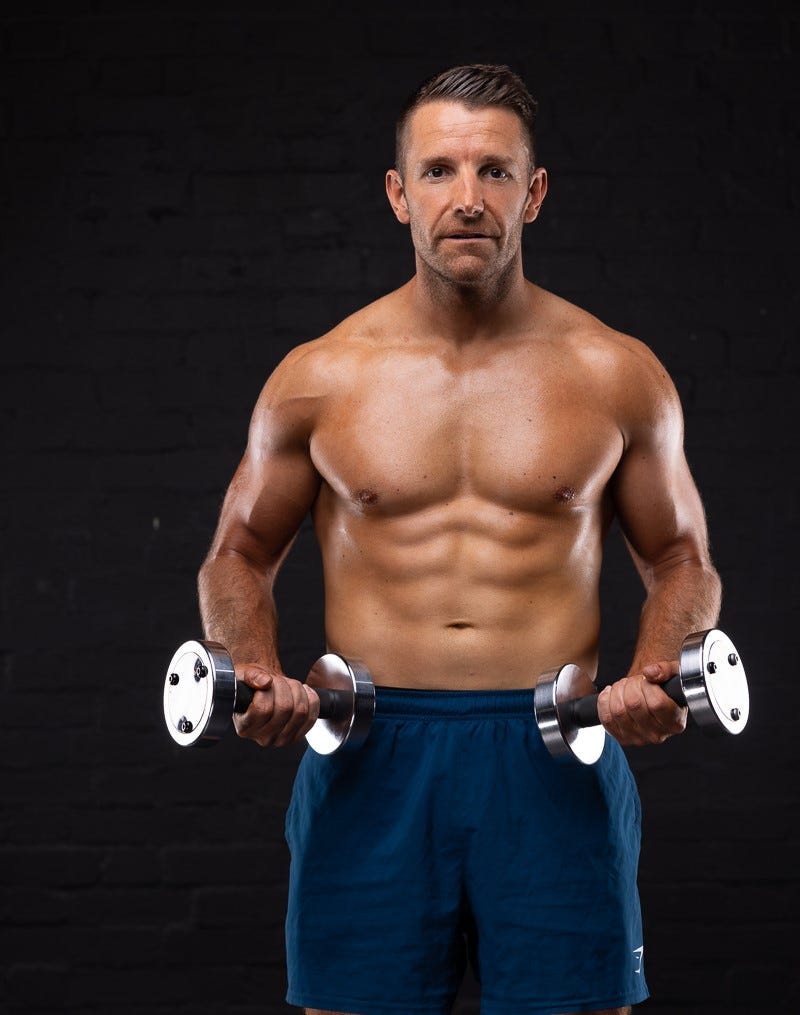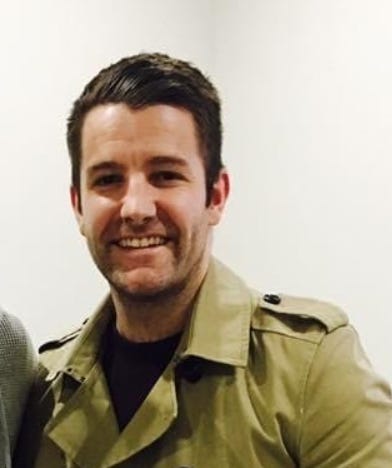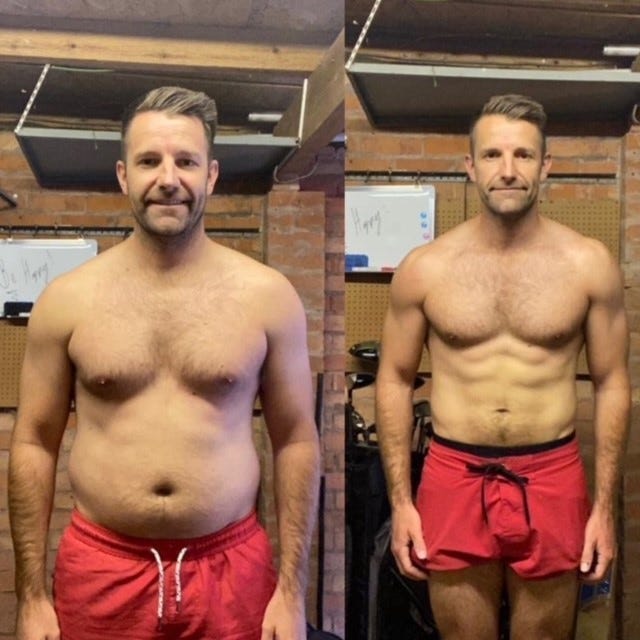The Most Effective Method I Used To Defeat Obesity.
These uncomplicated actions and small changes melted fat.

I pulled off a complete identity reboot, shedding 56 pounds in under a year.
I still can't believe it when people reach out to say my blog has inspired them or that they find my transformation genuinely remarkable.
I hit rock bottom, weighing 223 pounds with a BMI of 34.1 — firmly in the clinically obese category — had you told me back then that I'd be getting messages of support from strangers online now, I'd have thought you were nuts.
A BMI over 30 is obese, and under 18.5 is underweight.
I feel compelled to share the gritty details of my journey, knowing it hits home for so many people.
My daily cycle was exhausting: hitting snooze, scrambling to work without lunch, relying on vending machine snacks, feeling too drained for the gym after work, and ending the day with the guilt tax of underachievement eating away at my conscience.
There's nothing out-of-the-ordinary here.
Just a decade of bad habits and broken promises to myself.

I completely flipped my life.
If an average guy like me can make it happen, believe me, you can too — without a doubt.
My buddy and fitness guru, AJ Ellison, kept drilling it into me:
“Jay, you just need to make the mental switch of going all in.”
I saw fit people who seemed so at ease with themselves, completely unbothered by fears of slipping up or doubts like, "What if this doesn't work for me?" and I knew there had to be a better way.
It was time to subtly steer my ship in the right direction — no drastic overhauls, just minor, deliberate adjustments.
Despite what I thought, I didn't need to live on celery sticks, run marathons, or lift weights like Hulk Hogan.
These were all wildly limiting beliefs my inner voice clung to, trapping me in a cycle of self-doubt.
Every single line below is something I once said out loud.
I would rather enjoy my life than hammer myself in the gym.
I have a slow metabolism, so losing weight is impossible.
I don't have the willpower to stick to a fitness routine.
I've tried diets before, and they never work for me.
I'm too busy with work to exercise consistently.
I'm just not a naturally athletic person.
I enjoy eating chocolate far too much.
Grab a drink, get comfy, and dive in.
You need "Big Mo."
Prepare for a total paradigm shift.
World-renowned business mentor Darren Hardy, author of The Compound Effect, possibly my favourite self-help book, says that to jumpstart success in any part of your life, you must find "Big Mo."
But it starts slow.
He says, "You won't be able to see or feel Mo", but — "You'll know when you've got it."
What he's talking about is momentum.
Darren Hardy — Source — Page 94 “The Compound Effect”
“Objects at rest tend to stay at rest unless acted on by an outside force. Objects in motion tend to stay in motion unless something stops their momentum. Put another way, couch potatoes tend to stay couch potatoes. Achievers — people who get into a successful rhythm-continue busting their butts and end up achieving more and more.”
It's the revelation I had with my fitness journey.
Big Mo began slowly and with a lunchtime walk sparked by lockdown-induced anxiety.
That initial stroll out of the office for fresh air didn't feel like exercise or that I was building momentum into what would be an extraordinary weight loss journey.
It's like when you were a kid giving a merry-go-round a good shove.
When you and your buddies are all piled on at the beginning, those first pushes feel pretty slow, but once you get that momentum going, there's no stopping.
Walking became my daily ritual once I experienced the relief it brought to that pressure in my chest.
I couldn't wait to leave the office as soon as I arrived, which led to a morning stroll that frequently turned into an evening walk.
Since I liked going for walks and didn't associate it with exercise but instead as a means to get fresh air, it was a habit I could maintain.
My aha moment was realising that I was removing all my internal intimidation about exercising by doing this seemingly most straightforward thing — not by making the kamikaze, wholesale changes that society brainwashed me to believe.
Over several months, my weight gradually decreased because I consistently took 8,000 to 13,000 steps every day.
Cement your habit by getting "Big Brother" to watch you.
You can call this a PDA.
Public Display of Accountability.
For me, this happened organically because now I was worse than a protestor on the side of a freeway sharing my health kick journey.
A girl at work would ask with a hint of sarcasm:
“Jay, how many steps today?”.
She knew if she didn't ask, I would tell her.
I'd dive headfirst into my whole 10,000-step spiel:
“You know, it burns about 2,000 calories a week, which usually translates to losing between a quarter and half a pound each week.”
Sure, people might've scoffed and sarcastically said, "Oh, really?" in their best exaggerated voice, but I didn't care — this was the real deal.
Taking your pursuits out into the world, even when you notice people's eyes glaze over, sends a strong message of self-accountability.
Sports psychologists at The Ohio State Medical Center say:
“Set a goal for yourself and post it publicly for all your friends to see. If you set a goal and follow it up with a commitment to your peers, you’re more likely to hit your target. Your friends will help you stay motivated and cheer you on with every accomplishment. Never underestimate the power of that positive reinforcement.”
Begin at the most unexciting, mundane spot you can imagine.
One awful habit I'd get into at my office desk was squeezing my belly fat while gazing at my reflection on my laptop screen.
I'd snap out of being zoned out when a coworker would walk past and say:
“Stomach cramps, mate?”.
Inside, I'd think, "Wow, is it normal to have this much extra flab?"
I worked in sales, so I always did a convincing job of talking myself out of hitting the gym after work in the evening.
The dopamine rush of hammering a Domino's Mighty Meaty pizza dipped into some of their horrendously calorific garlic and herb sauce was enough to squash any thoughts of exercising.
I'd think — "Why bother? It's a wasted session anyway."
My inaction and mindset about my health were due to intimidation. I kept picturing the Mount Kilimanjaro I had to conquer — losing weight, eating healthy daily, and keeping up with a jam-packed gym routine.
It seemed way beyond my grasp from my starting point.
When I chatted with a fitness pro, he tried to break everything down into smaller chunks and examine how I moved daily.
We discussed increasing my "NEAT" levels, and I don't mean being tidy.
I mean the phrase Dr. James Levine coined, Non-Exercise Activity Thermogenesis.
Coach Chris said:
“Jay, ease up on thinking this is about high-intensity, back-breaking stuff, bud — it’s the more minor, nitty-gritty things we’ll start with to tackle your weight loss.”
They're the things you do for life.
NEAT is all the energy you use outside the gym and exercising, and you don't even consider it.
We're talking non-gym activity here.
Research shows that when non-strenuous activity is included, it makes up about 60% to 80% of all the calories we burn daily.
High NEAT levels are directly linked to reduced obesity.
Interestingly, what we typically consider "exercise" only accounts for about 15% of our daily calorie burn.
This is a heads—up that these hacks I use aren't earth-shattering, but they're habits that have moved the needle for me over time.
I keep a stress ball at my desk.
I consciously choose the stairs.
I take a walk during my lunch break.
Every half-hour, I stand up at my desk.
Every morning, I step outside for a walk.
As a writer, I leave my phone upstairs in my room (adds more steps).
It's simple stuff.
But the domino effect is profound. It kicked my exercise fears to the curb and got the momentum ball rolling—like a merry-go-round picking up speed.
It was a cornerstone habit that had a knock-on effect on other new habits, like walking turning into running and running, resulting in a gym membership where I could do weight training.
I'm sure we have a hardwired drive to evolve constantly.
The late Jim Rohn summed it perfectly when he said every new habit affects the rest.
“All disciplines affect each other. Mistakenly, the man says, “This is the only area where I let down.” That’s not true. Every letdown affects the rest. Not to think so is naive”.
Elephants don't bite, but mosquitos do.
I used to be my harshest critic, beating myself up like one of Mike Tyson's punchbags.
If I ever went on a weekend binge, skipped a gym session, or even indulged in one unhealthy meal, I'd let it mess with my progress.
I'd think:
“Yep, here we go again. I knew I’d never be able to stick with it. That’s it. The clean slate is gone, and my gym routine is up sh*ts creek. Look how far behind I am.”
When I let go of the self-ridicule, removed my feelings from the process, and just said, "It's okay — I'll just start again where I left off," — it took away the pressure, which removed those days when I'd decimate my diet or kick my gym routine while it was down.
The habit of getting back in the saddle with my fitness is the most profound habit I have ever developed.
It started with a little less self-ridicule and being a little kinder.
While it feels like a bump in the road, missing, skipping, or a one-off binge is not the monumental obstacle we often imagine it to be.
In reality, the more minor and seemingly insignificant things derail us more.
Here's a wrap sheet of mine that were worse than a one-off weekend drinking:
No packed lunch for work meant snacking out of the vending machine and eating high-calorie food from the jacket potato van.
I was consistently going to bed at 2 am.
Getting up late and not going for a walk in the morning meant I was sedentary most of the day.
I was getting no natural sunlight, so lunchtime sleepiness slumps KO'd me during the day (studies prove)
I skipped the gym because "I'll do it Monday" sounded better.
Ordering takeaway because it's quicker than doing the washing up
Darren Hardy says:
“It’s not the single tragic moment we should be concerned with. For most of us, the frequent, small, and seemingly inconsequential choices are a grave concern — the type of decisions you think make no difference at all.
“Like when you inhale a soda and bag of potato chips and suddenly realise only after you polished off the last chip that you blew an entire day of healthy eating, and you weren’t even hungry.”
My simple nutrition formula.
I don't care how fast or slow your metabolism is — it's always "calories in vs. calories out" regarding weight loss.
A research paper submitted by the Cardiometabolic Research Institute said:
“The ‘calories in, calories out’ concept is fundamental in managing obesity, focusing on the balance between calorie intake and expenditure.”
I'm not suggesting you go to extremes like having Burger King every day or my favourite sinister question — "Would 2000 calories of sugar be okay?".
I used a BMR calculator. There are many moving parts here, and the BMR measure is not always spot-on, so it's smart to get a second opinion.
After deducting 500 daily calories, which is standard for males, I had a daily allowance of 2000 calories to play with.
Yes — it's about calorie counting, but managing your cravings is crucial. Combining calorie restriction with mindful eating will burn off that extra weight like a furnace.
It's simple.
Get your macronutrients.
Macros are fats, carbs and protein.
Generally, dietitians and medical experts recommend a macro breakdown of 20% to 30% fat, 30% protein, and 40% to — 50% carbohydrates in each meal because this balances all three energy sources.
I found that when I nailed this, I consistently had more energy.
You don't need a PHD in health and nutrition to understand all this — use the MyFitnessPal app and scan everything you eat. It tracks everything for you.
You'll slowly learn, organically and over time, how many calories are in certain foods and the macro breakdown of those calories.
Here's my meal plan.
I change it up often for variety. My usual goal is to incorporate all three macros into two or three daily meals while staying within my calorie limit of 2000.
Pro tip: A weighing scale is the be-all-and-end-all of weight loss. It’s like the linchpin of health and wellness.
Breakfast: Two tablespoons of Peanut Butter (188 cal) on two pieces of toast (160 cal) with a protein shake (130 cal)
Snack: Half a Grenade bar (110 cal)
Lunch: 150 grams chicken cooked (250 calories) + one and a half fajita wraps (150 calories) sprinkled with 30 grams light mature cheddar (100 calories)
Snack: The other half is that Grenade bar (110 cal) and a cappuccino(130 cal)
Dinner: Half a cup of Basmati Rise (83 cal), Half a cup of Lentils (115 cal), One yellowfin tuna/steak/chicken (150 cal) and one tablespoon of extra virgin olive oil (120 cal). I mix in vegetables sporadically and have a roast dinner most Sundays.
Track like a Jedi.
In those early days, my most significant mistake was not keeping tabs on the numbers. Worse, I just guessed.
It left me wide open to overconsuming food.
Before using tracking Apps, I underestimated the calories I put into my body, which is common.
Sometimes, I was off by thousands.
Research shows that one of the leading causes of obesity is the idea that you think you're eating right, but your assessment of what goes into your mouth is as accurate as a fortune cookie.
A National Health and Nutrition Examination Survey of 11,288 adults over 20 found that 63% of obese adults thought their diet quality was excellent when, in fact, 70% of them had terrible diet quality.
The study showed that adults could not accurately assess diet quality because only 15% returned accurate diet quality assessments with 96% accuracy.
So we overrate our diet quality.
Another study on the same subject concluded:
“Underreporting of energy intake from foods is a frequent finding in patients with disturbances in body weight regulation who are referred for obesity evaluation”.
Final Thoughts.
I pulled off some life-altering results.
It started with low-grade movements like lunchtime walks, holding myself accountable, keeping tabs on everything, and sticking to a straightforward nutritional plan.
What started as me stepping out of my former wage slave office has now turned into three weekly weight lifting sessions in the gym and three 5km runs.
Since I started tracking, I have lost 30 pounds, but from my peak on the scale, I've lost 56 pounds, which is almost a whole human.
I gathered tons of momentum because I was willing to start slow with less intimidating stuff — it was like finding the next ledge on a cliff, not looking down at the ground or how far I had to go ahead.
There's no boot camp or significant overhaul process — just tiny changes gathering pace.
Studies show that my small actions reduced my encounters with failure, a discouraging roadblock.
Even more profound is that my progress has become self-perpetuating, which has led to further progress.
Health Behaviour Research Centre London — Source
“Small changes can benefit health: slight adjustments to dietary intake can aid long-term weight management, and small amounts of light physical activity are more beneficial than none.
Uncomplicated actions become habitual more quickly. Behaviour change achievements, however small, can increase self-efficacy, which can, in turn, stimulate the pursuit of further changes.
Forming one ‘small’ healthy habit may thereby increase self-confidence for working towards other health-promoting habits.”
Kick things off small!
Find "Big Mo".
Stay on top of things, handle those small hurdles, focus on NEAT, keep your nutrition straightforward, and monitor your progress closely.
It was like magic in a bottle for me.
It's how I defeated obesity.
Free offer for my readers
Chris, the online fitness pro who revolutionised my fitness journey, is offering a free discovery call.
If you're ready to transform your fitness and tailor a plan that suits your unique lifestyle, this is your chance.
Click here to book your FREE call with Chris and start your journey towards a healthier, fitter you. (affiliate link).




